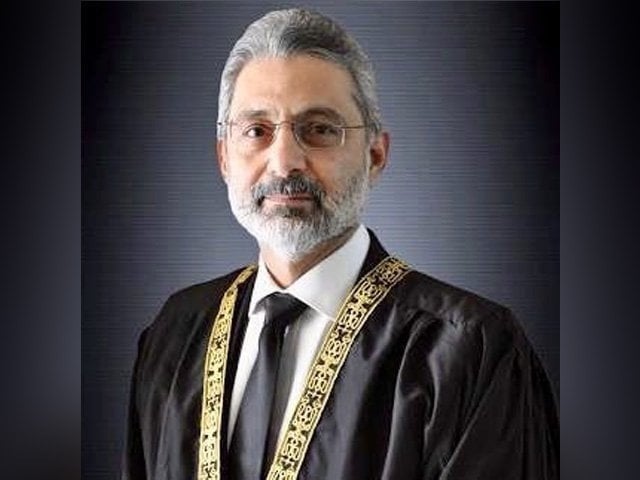ISLAMABAD: Chief Justice of Pakistan (CJ) Qazi Faez Isa has taken a firm stance against the eight Supreme Court judges who allowed the Pakistan Tehreek-e-Insaf (PTI) to claim reserved seats in the National Assembly and provincial legislatures through a controversial majority order on July 12.
A week after the order was issued, CJ Isa, leading a three-member Supreme Court committee responsible for case listings and bench formations, called for a prompt hearing of the Pakistan Muslim League-Nawaz (PML-N) government’s review petition against it. However, the other two committee members, Justice Syed Mansoor Ali Shah and Justice Munib Akhtar, disagreed with his approach.
In response, CJ Isa issued a dissenting note expressing concerns over the majority opinion. Shortly thereafter, he restructured the alternate dispute resolution (ADR) committee, replacing Justice Shah with Justice Yahya Afridi and adding two other judges, indicating escalating tensions among senior justices.
Further friction was evident when Justice Shah and Justice Akhtar modified the minutes from an August 1 meeting meant to schedule the hearing for the murder case of journalist Arshed Sharif. Sources revealed that these minutes were uploaded on the Supreme Court’s website without their signatures or approval.
CJ Isa had previously raised concerns about Justice Athar Minallah’s delay in delivering a ruling on the Excise Act, 2005. The relationship between the two has soured since a letter was sent by six Islamabad High Court judges in March, highlighting interference by agencies in judicial matters. Their ongoing disagreements surfaced during hearings related to the reserved seats case and the Khyber Pakhtunkhwa government’s plea for live streaming of the NAB law amendments case.
Tensions among the judges were further highlighted when Justice Munib Akhtar walked out of a Judicial Commission of Pakistan meeting on September 13, and when two senior judges skipped the opening ceremony of the new judicial year.
The situation has led CJ Isa to seek an explanation from the SC registrar regarding the issuance of the eight judges’ clarification on the Supreme Court website. Legal experts have differing opinions on how to address these rising tensions, with some advocating for a full court meeting to strategize against perceived assaults on the judiciary, while others advise restraint.
Supporters of CJ Isa question why the eight judges have delayed issuing a detailed judgment in the reserved seats case, suspecting this could be an attempt to obstruct a proposed judicial package that includes the establishment of a Federal Constitutional Court (FCC). Concerns have been raised about the potential implications for judicial independence, particularly in light of the current government’s perceived control over the judiciary.



